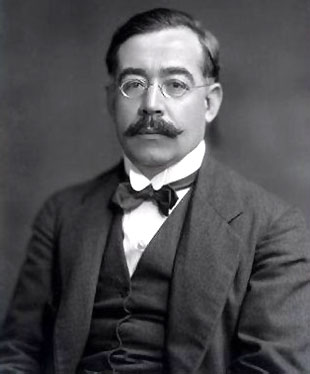
Leopoldo Antonio Lugones Argüello was an Argentine poet, essayist, novelist, playwright, historian, professor, translator, biographer, philologist, theologian, diplomat, politician and journalist. His poetic writings are often considered to be the founding works of Spanish-language modern poetry. His short stories made him a crucial precursor and also a pioneer of both the fantastic and science fiction literature in Argentina.
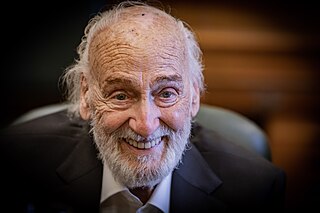
Héctor Benjamín Alterio Onorato is an Argentine theatre, film and television actor, well known both in Argentina and Spain.
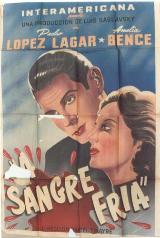
A sangre fría is a 1947 Argentine crime film of the classical era of Argentine cinema, directed by Daniel Tinayre and written by Luis Saslavsky.
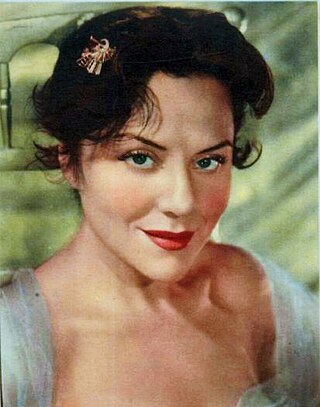
Amelia Bence was an Argentine film actress and one of the divas of the Golden Age of Argentine cinema during the 1930s and 1950s.

Mecha Ortiz was an Argentine actress who appeared in films between 1937 and 1981, during the Golden Age of Argentine cinema. At the 1944 Argentine Film Critics Association Awards, Ortiz won the Silver Condor Award for Best Actress for her performance in Safo, historia de una pasión (1943), and won it again in 1946 for her performance in El canto del cisne (1945). She was known as the Argentine Greta Garbo and for playing mysterious characters, who suffered by past misfortunes in love, mental disorders, or forbidden love. Safo, historia de una pasión was the first erotic Argentine film, though there was no nudity. She also played in the first film in which a woman struck a man and the first film with a lesbian romance. In 1981, she was awarded the Grand Prize for actresses from the National Endowment for the Arts.

Miguel Ángel Solá Vehil is an Argentine actor who has made over 60 film appearances in film and TV in Argentina since 1973. He is traditionally typecast in villain roles.

Hermanos is a 1939 Argentine drama film of the Golden Age of Argentine cinema directed by Enrique de Rosas. The film premiered in Buenos Aires and starred José Gola and Amelia Bence.
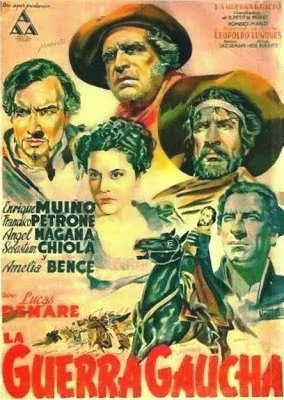
The Gaucho War is a 1942 Argentine historical drama and epic film directed by Lucas Demare and starring Enrique Muiño, Francisco Petrone, Ángel Magaña, and Amelia Bence. It is one of the most celebrated works of the Golden Age of Argentine cinema. The film's script, written by Homero Manzi and Ulyses Petit de Murat, is based on the novel by Leopoldo Lugones published in 1905. The film premiered in Buenos Aires on November 20, 1942 and is considered by critics of Argentine cinema to be one of the most successful films in history.
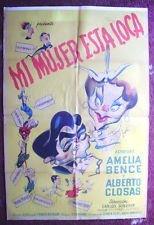
Mi mujer está loca is a 1952 Argentine romantic comedy film of the classical era of Argentine cinema, directed by Carlos Schlieper and Enrique Cahen Salaberry, and starring Amelia Bence, Alberto Closas, and Amalia Sánchez Ariño.

Alberto Closas Lluró was a prolific Spanish film actor who appeared in the Cinema of Argentina in the 1940s and 1950s and in Spanish cinema after 1955.

Francisco Petrone was an Argentine film actor, notable for his work during the Golden Age of Argentine cinema. He is best known for his roles in the 1940s in the classic film La Guerra Gaucha (1942) and A Real Man (1943), for which he won the Silver Condor Award for Best Actor at the 1944 Argentine Film Critics Association Awards.
La Guerra Gaucha is the first book, outside of his published poems, of the Argentine writer Leopoldo Lugones (1874–1938). Published in 1905, it is a book of stories about the gaucho guerrilla war they fought, commanded by Martín Miguel de Güemes, against the Spanish royalists during the Argentine War of Independence, between 1815 and 1825. It is written in the fictional gaucho slang of the time and it is difficult to understand for anyone not versed in it. The strength of the epic nature of the stories made it a very successful book.
24 Hours in the Life of a Woman is a 1944 Argentine drama film of the classical era of Argentine cinema, directed by Carlos F. Borcosque and starring Amelia Bence and Roberto Escalada. It is based on the 1927 novel Twenty-Four Hours in the Life of a Woman by the Austrian author Stefan Zweig. Mario Fezia won the Silver Condor Award for Best Sound for the film.
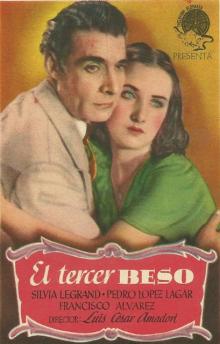
The Third Kiss is a 1942 Argentine romantic drama film of the Golden Age of Argentine cinema, directed by Luis César Amadori and starring Pedro López Lagar, Silvia Legrand and Amelia Bence. At the 1943 Argentine Film Critics Association Awards, Amelia Bence won the Silver Condor Award for Best Actress for her performance in the film.
The 1944 Argentine Film Critics Association Awards ceremony was held in Buenos Aires on 4 April 1944 to honour the best films and contributors to Argentine cinema in 1943.

Leticia Scury, also spelled Leticia Scuri, was an Argentine actress. In 1928 she joined the Compañía Dramática de la “Casa del Arte”in Montevideo, Uruguay. She entered film in 1938 in Mario Soffici's Kilómetro 111 (1938). At the 1944 Argentine Film Critics Association Awards she won the Silver Condor Award for Best Supporting Actress for her performance in the critically acclaimed drama Three Men of the River. Other notable films include The Gaucho War (1942), Todo un hombre (1943), Albergue de mujeres (1946) and Arrabalera (1950).

Paulina Singerman Begun was an Argentine actress and businesswoman who primarily worked during the Golden Age of Argentine cinema, performing on both stage and in films. In the later part of her career, she spent a decade performing for television. She was the younger sister of actress Berta Singerman. In 1981, she was awarded both a Diploma of Merit and a Platinum Konex for her comedy work in film and theatre.

La fuga is a 1937 Argentine drama film directed by Luis Saslavsky and starring Santiago Arrieta.
Osvaldo Cattone was an Argentine actor who lived for over three decades in Peru and was considered one of the pioneer theater directors and actors of Peru.
Pampa Film was an Argentine film production company that was active during the Golden Age of Argentine cinema in the 1930s and 1940s. It is known for its classic Prisioneros de la tierra (1939).














